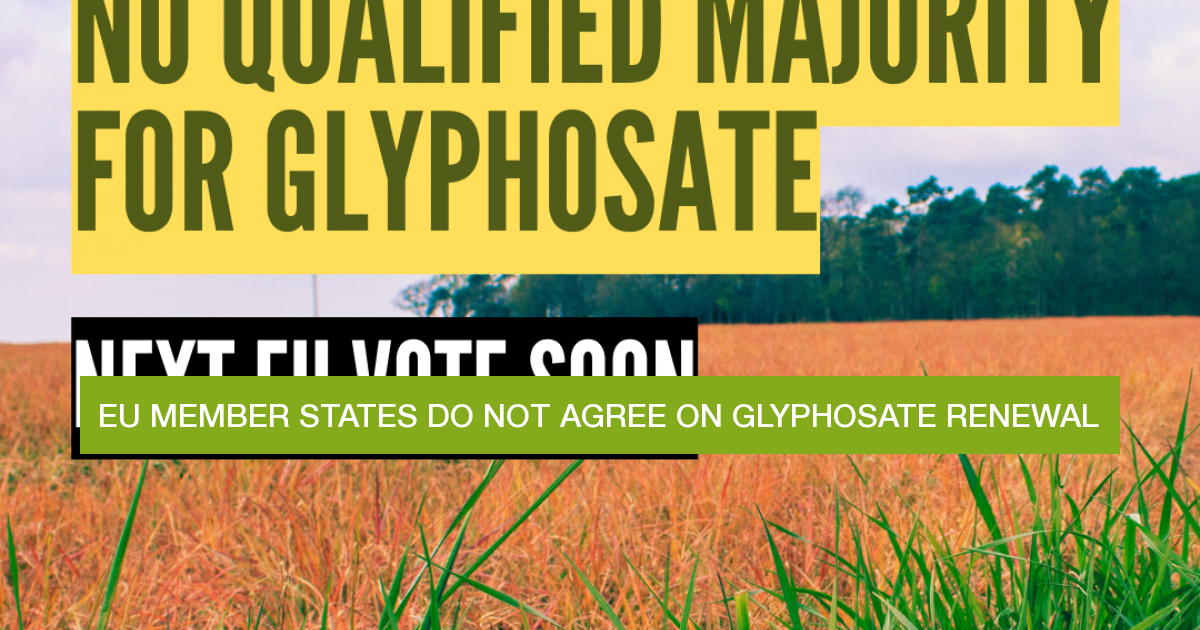The EU Member States did not reach a qualified majority to reapprove the licence for glyphosate in the SCoPAFF meeting today. PAN Europe welcomes the decision. Gergely Simon, Senior Policy Officer at PAN Europe, says: “This is an important signal. It does right to the concerns of a majority of Europeans about the impact of pesticides on health and environment. A wide range of independent scientists have expressed their concerns and their studies show serious negative effects of glyphosate use. Re-approval of glyphosate breaches the EU Pesticide Law, under which health and environment should come first. In case of doubt, the precautionary principle must be invoked.”
Member States will be invited to vote again on the Commission’s proposal on the re-authorization in the upcoming weeks in the Appeal Committee. The Commission is expected to adapt the proposal. If again no qualified majority is reached it will be up to the Commission to decide on its own.
A recent IPSOS poll spanning six EU countries shows that only a mere 14% of citizens express support for the prolonged use of glyphosate. In stark contrast, almost two-thirds (62%) of respondents advocate for a ban of glyphosate.
Also important to note: The first carcinogenicity data from the multi-institutional Global Glyphosate Study will be presented at the international scientific conference “Environment, Work and Health in the 21st Century: Strategies and Solutions to a Global Crisis", which will be held in Bologna, Italy on October 25th. The presented data will be from the most comprehensive toxicological study ever on glyphosate and glyphosate-based herbicides.

